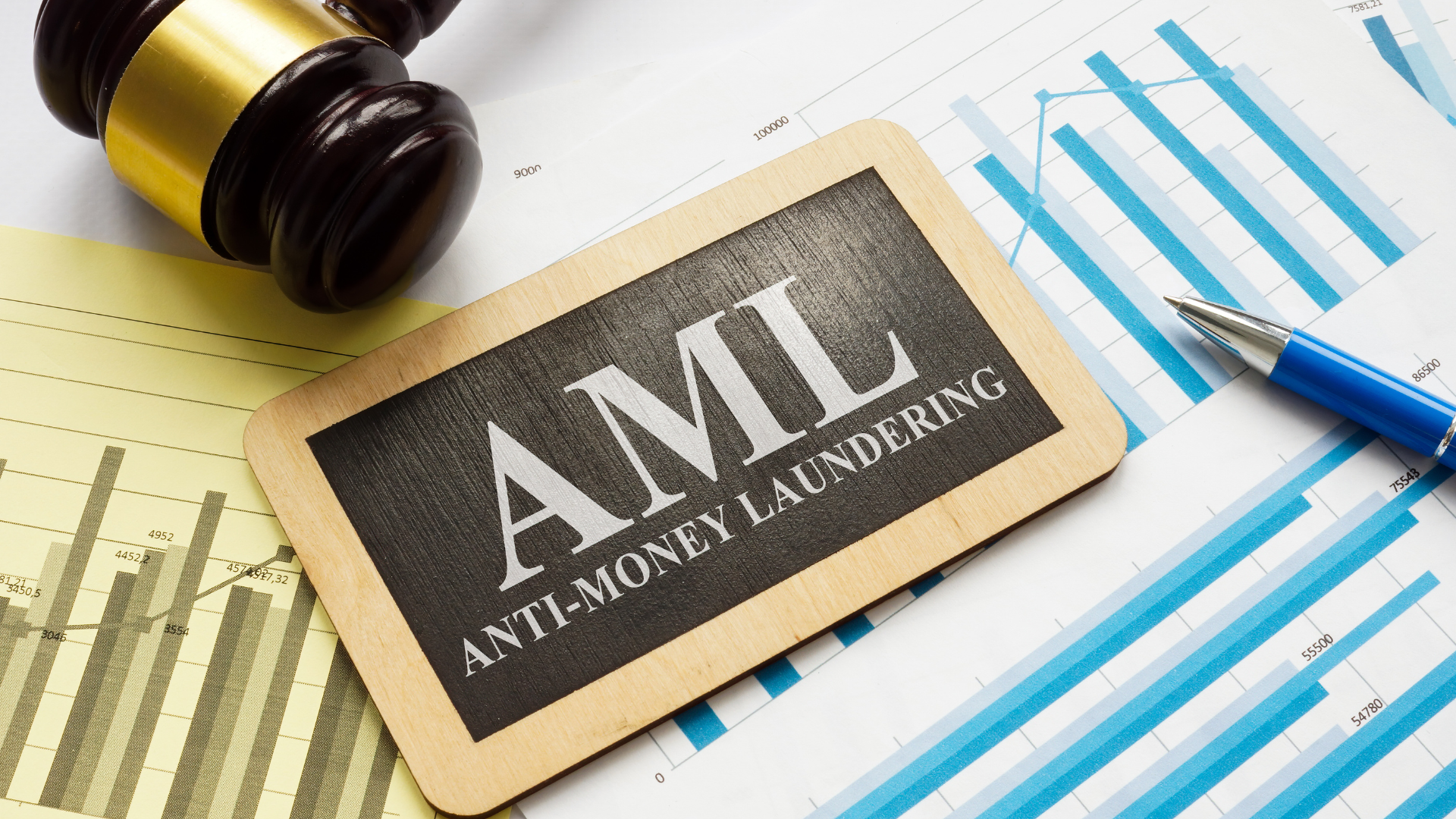How to Report Money Laundering
- Blow the Whistle using the Anti-Money Laundering Act
- If Successful, Collect a Substantial Whistleblower Award
- Potentially Remain Anonymous from Start to Finish
- Free Confidential Consultations – No Fee Unless We Win
The Anti-Money Laundering Act (“AMLA”) provides significant incentives for whistleblowers to report illegal money laundering, and provides strong protections when they do. Keep reading to find out more about this powerful legal tool, and then speak with the anti-money laundering whistleblower lawyers at Brown, LLC for a free confidential consultation about your rights.
What is Money Laundering?
Money laundering is the movement of illicit cash or cash equivalents into, out of, or through U.S. businesses or financial institutions. An example is when unlawfully obtained money is routed through multiple banks and businesses to conceal the original source of those funds. This definition includes criminal money laundering, such as transacting money and financial instruments which represent the proceeds of unlawful activity. And importantly, the AMLA now rewards whistleblowers who disclose violations of U.S. sanctions.
What is an AML Whistleblower, also known as an Anti-Money Laundering Whistleblower?
An AML whistleblower or an Anti-Money Laundering Whistleblower is an individual who is generally an insider at a financial institution or bank, who comes forward with information about money laundering activities that are being conducted by an individual, a company, or an organization. AML whistleblowers play a critical role in detecting and reporting financial crimes that could be used to fund illegal activities, such as terrorism, drug trafficking, and other organized criminal activities. Whistleblowers can provide information that may not be available to law enforcement authorities through other means, which makes them a valuable asset in the fight against money laundering and in turn can potentially receive a handsome AML whistleblower award.
Whistleblower Awards Under the AMLA
Under the AMLA, an AML whistleblower can receive between 10% and 30% of the sanctions collected by the government in an enforcement action, if the overall recovery exceeds $1 million. The exact amount of the whistleblower’s award will depend on the usefulness of the whistleblower’s information and their cooperation during the investigation. An experienced whistleblower law firm will know how to position your case to potentially receive the largest award possible.
We Protect Whistleblowers Nationwide – File Anonymously
The AMLA provides significant protections for whistleblowers from retaliation for those who blow the whistle by reporting money laundering the right way. Under the AMLA, a whistleblower who suffers retaliation can receive double back pay and reinstatement and can take advantage of an extended six-year statute of limitations. Plus, if you work with an experienced AML whistleblower attorney, you should be able to file your complaint anonymously.
Why is an AML Whistleblower Lawyer or an AML Whistleblower Attorney Important?
Reporting money laundering activities can be a complex and challenging process. There are often legal and professional risks involved, and whistleblowers may need the help of an AML whistleblower lawyer or attorney to navigate the legal complexities of reporting such activities. A whistleblower lawyer can provide guidance and advice on the proper procedures for reporting money laundering activities. Further, with the use of an AML whistleblower law firm, whistleblowers may be able to stay anonymous from start to finish.
More specifically, an AML whistleblower lawyer or attorney can assist whistleblowers in several ways. Firstly, they can provide advice on the legal and regulatory requirements for reporting money laundering activities and help determine whether the conduct is indeed illegal and/or worthy of reporting, and then execute a plan to help the whistleblower successfully obtain an AML whistleblower award. This will involve assisting the whistleblower to prepare and present their case in the strongest possible light. Additionally, an AML whistleblower lawyer or attorney can provide legal representation to the whistleblower if they face retaliation from their employer or other parties, although these risks may be mitigated if the whistle is blown anonymously, in a manner that cannot be traced back to the whistleblower.
AMLA, the False Claims Act, and the IRS Whistleblower Program
Your case may fall under more than one government whistleblower program. For instance, an AML case might also implicate the False Claims Act or the whistleblower program of the Internal Revenue Service. A law firm that focuses its practice on helping and protecting whistleblowers, like Brown, LLC can navigate the legal and procedural hurdles to put your case in the best possible position to succeed.
The Whistleblower Law Firm of Brown, LLC – AML Whistleblower Law Firm
Brown, LLC is a whistleblower law firm with a team of dedicated whistleblower lawyers who have been through it all. Although no results can be guaranteed, our team has won time and time again. The firm is led by Former FBI Special Agent and Legal Advisor Jason T. Brown and is known nationwide both for achieving significant settlements and for innovatively litigating when necessary – and winning. Our lawyers have recovered hundreds of millions of dollars for our clients. We charge nothing upfront, and we’re only paid if we win money for you. Call today for a free consultation – (877) 561-0000.
Frequently Asked Questions
What types of activities constitute money laundering?
Money laundering is defined broadly and includes the use of banks and financial institutions to transact money and financial instruments which represent the proceeds of unlawful activity, and conduct other types of prohibited and illicit transfers of cash or cash equivalents, and generally involves concealing the nature of the underlying transaction. Because money laundering is broadly construed, even banking with countries that are sanctioned by the U.S. Government may implicate violations of the AML provisions. Also, a wide range of illegal and criminal enterprises, including those involved in drug trafficking, terrorism, arms trafficking, and organized crime, usually involve money laundering. Nowadays, cryptocurrency money laundering — where the banks transfer the proceeds of cryptocurrency sales whose true origins are concealed — is becoming more prevalent.
How can I report money laundering activities?
The process for reporting money laundering activities may vary depending on the country and jurisdiction. In the United States, whistleblowers can report money laundering activities to the Financial Crimes Enforcement Network (FinCEN) or the Securities and Exchange Commission (SEC) if the case also implicates a security. The AMLA also created a whistleblowing mechanism that allows whistleblowers to directly file tips with the Department of Justice and the Department of the Treasury. In order to facilitate obtaining a whistleblower reward, it is critical to present the matter in the most easily digestible manner possible, as the volume of the tips is enormous, and you only have one shot to make the best first impression of the case. It is thus important to seek legal advice from an experienced AML whistleblower lawyer before filing a tip, especially if you wish to remain anonymous.
What protection do whistleblowers have under the Anti-Money Laundering Act of 2020?
The Anti-Money Laundering Act of 2020 provides enhanced protection for whistleblowers who report money laundering activities. Whistleblowers are protected from retaliation by their employers and may receive a reward of up to 30% of any monetary sanctions imposed by the government. The act also provides confidentiality protection for whistleblowers, which means that their identity will be kept confidential through the use of an AML whistleblower attorney which can help sidestep any retaliation issues.
AML regulations play a critical role in preventing financial crimes such as money laundering, terrorist financing, and other forms of illicit activities. Whistleblowers can provide valuable information to help detect and report such activities, but they may face legal and professional risks in the process. Seeking legal representation from an experienced AML whistleblower lawyer or attorney can help whistleblowers to navigate the legal complexities of reporting money laundering activities and protect their legal rights. It’s important to act quickly and seek legal advice as soon as possible if you suspect money laundering activities in order to protect your rights and claim your stake to any potential whistleblower award before someone else does.
What is the Anti-Money Laundering Act of 2020?
The Anti-Money Laundering Act of 2020 is a relatively new piece of legislation that was enacted by the United States Congress to strengthen and expand the existing AML laws and to concretely incentivize insiders to blow the whistle on money laundering. The act introduced several new provisions that increase the obligations of financial institutions to prevent and detect money laundering activities, and further created and improved compliance and enforcement mechanisms, including the AML whistleblower program. Prior to the AMLA, the law required the Treasury Secretary to award whistleblowers a maximum of $150,000 and not more than 25% of the criminal fine or civil penalty obtained as a result of the original information submitted by the whistleblower. However, the award was issued at the sole discretion of the Secretary and there were no avenues for judicial review if the Secretary declined to issue an award. The AMLA removes the $150,000 cap and increases the whistleblower’s share to a maximum of 30%. While the amount of the award remains at the discretion of the Secretary, the AMLA now provides for judicial review of any decision by the Secretary to deny an award to a whistleblower.
The AMLA also provided enhanced protection for whistleblowers who report money laundering activities. Whistleblowers are protected from retaliation if they blow the whistle against their employer for either facilitating money laundering, engaging in money laundering, or failure to implement and/or the correct compliance mechanisms to help detect money laundering, including, but not limited to KYC (know your client) provisions. AML whistleblowers may receive a reward of up to 30% of any monetary sanctions imposed by the government and with an estimated hundreds of billions of dollars each year of money laundered it is predicted that an aggregate billions of dollars will go to AML Whistleblowers over the next decade.
AML whistleblower lawyers at Brown, LLC have a proven track record of successfully representing whistleblowers, and have dedicated a substantial portion of its practice to whistleblowers. Moreover, Jason T. Brown, the Senior Partner of the firm, is a former FBI Special Agent and Legal Advisor, and has extensive experience in dealing with the Department of Justice, the Department of the Treasury, and other government agencies such as the SEC and FINCEN, and can help you seamlessly interface with the government agencies that will be investigating and prosecuting your claims. If you are aware of significant money laundering or you believe you have been discharged, demoted, or discriminated against because you reported illegal money laundering at your place of employment, contact Brown, LLC for a free consultation.


